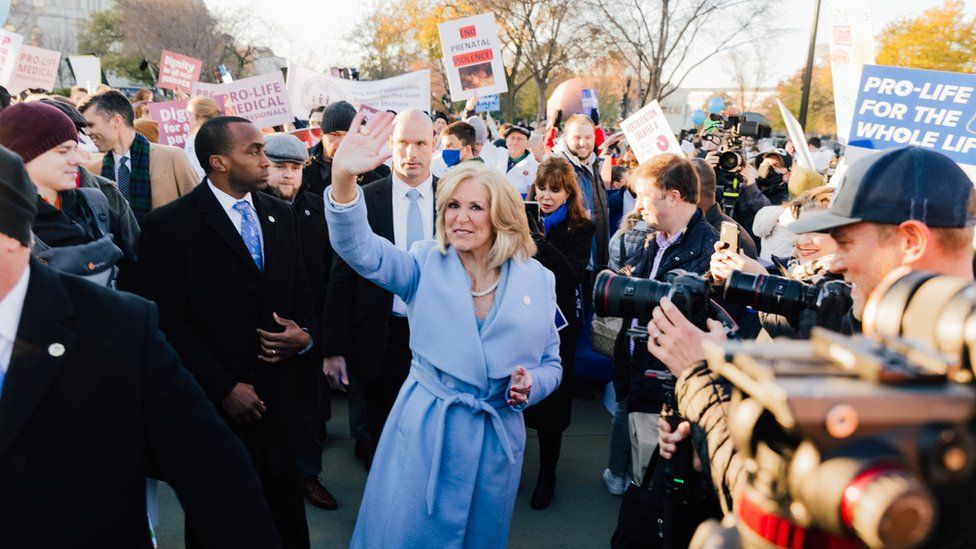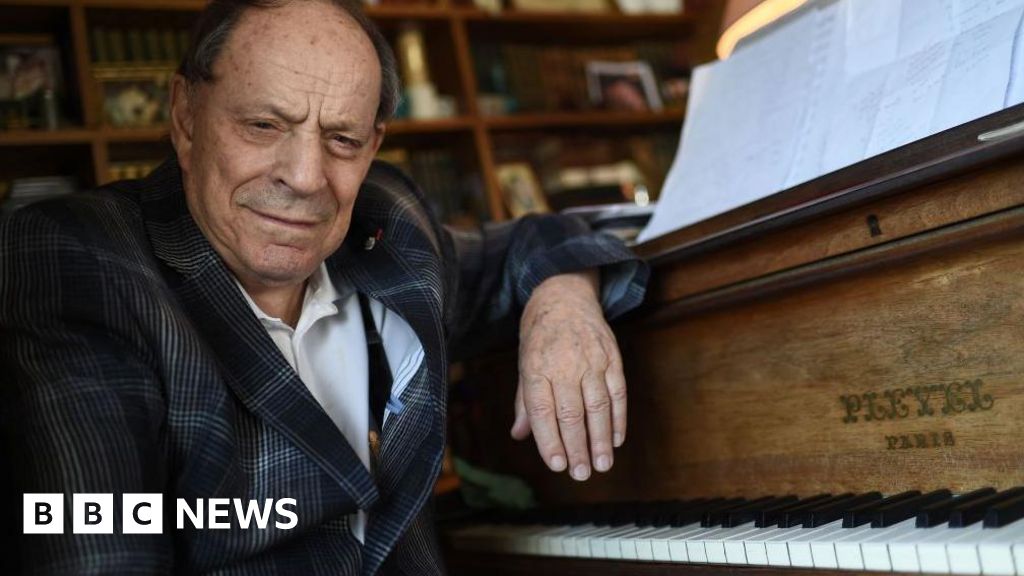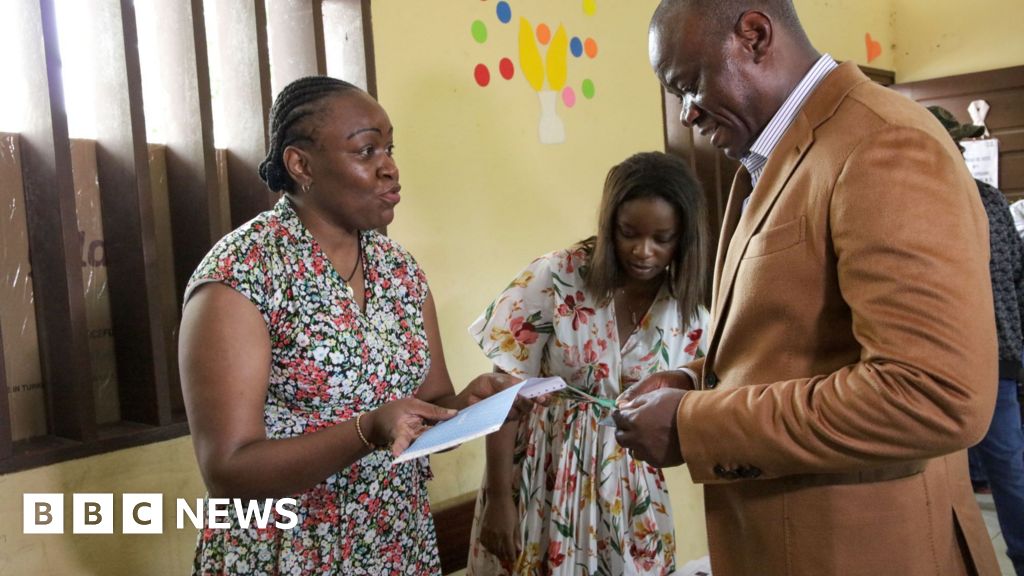ARTICLE AD BOX
By Holly Honderich
BBC News, Washington
 Image source, Mark Story
Image source, Mark Story
Lynn Fitch may be the lawyer to end Roe v Wade
In September 2021, Mississippi's chief legal officer sat down for an interview with Pro-Life Weekly, a Catholic television programme featuring anti-abortion activists.
Lynn Fitch looked how she almost always does during public appearances: dyed-blonde hair blow-dried straight and neat, tasteful jewellery and a monochrome suit, this time in powder blue.
The attorney general was there to celebrate. The United States Supreme Court had just announced the date it would hear her state's challenge to Roe v Wade, the 1973 ruling that has, for the nearly 50 years since, served as a nationwide guarantee to abortion access.
The case, Dobbs v Jackson Women's Health Organization, centres on a Mississippi law that would ban abortion after 15 weeks of pregnancy, even in cases of rape or incest. Under Ms Fitch's direction, the state asked the Supreme Court to uphold the law and slash the landmark Roe v Wade decision in the process. A ruling is expected this month. A leaked draft suggests it is likely that Mississippi's ban will be upheld, paving the way for other states to also outlaw abortion.
Ms Fitch - who declined to be interviewed - had argued that overturning Roe v Wade would be "game-changing", "uplifting" women by eliminating what she described as a false choice between family and career.
"Fifty years ago, for professional women, they wanted you to make a choice. Now you don't have to," she said on Pro-Life Weekly. "You have the option in life to really achieve your dreams, your goals, and you can have those beautiful children as well."
If she wins the case, and Roe v Wade falls, some 40 million women may lose access to abortion, pro-choice advocates warn. It could also make Ms Fitch, a single working parent of three, a Republican superstar and poster-child for her own argument: modern women don't need abortion to have it all.
Image source, Getty Images
Image caption,Ms Fitch is facing off against Jackson Women's Health Organisation - the last remaining abortion clinic in Mississippi
Abortion was not always an animating theme of Ms Fitch's political career. When she first took public office, as Mississippi state treasurer in 2011, she pushed for legislation that would guarantee men and women were paid equally.
Her convictions were shaped in many ways by her upbringing, and especially her experiences as a single mother, says Hayes Dent, a long-time friend and colleague, who ran her first political campaign.
When Mr Dent first met Ms Fitch, she had just been named executive director of the Mississippi State Personnel Board, a state agency, by then-governor Haley Barbour. Mr Dent was immediately impressed.
"Having been around every major political figure in Mississippi for 40 years, I could just tell: she's going to run," Mr Dent said. "And when she pulls that trigger, she's going to be successful."
It wasn't for another couple of years that she did, launching a campaign for state treasurer.
Whens he launched her first political campaign, for state treasurer in 2011, "she was an underdog," said Austin Barbour, a national GOP strategist (no relation to former Governor Barbour).
Mr Dent, who had kept tabs on Ms Fitch, reached out to her in the middle of that 2011 cycle and asked to come on board her campaign.
"I said 'Look, I think you can win this race,'" he recalled.
She accepted, and the two ran an ambitious campaign, even driving the length of the state in a day, making a handful of different stops and placing fundraiser calls in the hours between.
"Her attitude was 'what is the task at hand,'" Mr Dent said. "It'd be like 'Look, we've gotta go to the tobacco spitting festival.' And she'd do great! She wouldn't spit tobacco, but she was great."
The only reason Ms Fitch would turn down a campaign event was her kids, cutting out early to make a school basketball game or parent-teacher conference.
She was a natural campaigner, but fundraising lagged, so Mr Dent asked her father for a personal donation.
Image source, Getty Images
Image caption,Attorney General Fitch may become a hero on the political right
Bill Fitch still lived in Holly Springs, the small, rural town near the state's northern edge where Ms Fitch spent most of her childhood.
Her father had inherited land on the historic Galena Plantation and used the sprawling 8,000-acre property to restore the family farm, turning it into a premier quail hunting destination. The late Supreme Court Justice Antonin Scalia, and Mississippi governors Barbour and Phil Bryant, became frequent guests.
Visitors of Fitch Farms could elect to stay in the former home of Confederate general and first grand wizard of the Klu Klux Klan, Nathan Bedford Forrest, which Mr Fitch had bought and transported onto the property.
Ms Fitch has told local media of "special" childhood memories at her father's farm, riding horses and hunting quail.
As a teenager, she was the "prototypical popular girl", Mr Dent said. "Leader, cheerleader, athletic, the whole nine yards," he said.
She went to the University of Mississippi, joined a sorority and graduated with a degree in business administration and later in law.
When Mr Dent drove to her father's farm to make his pitch for a campaign donation, he said: "I told him if I left there with a big cheque, she was going to win".
She won, and then won again four years later, securing a second term as state treasurer.
In this office, she targeted state debt, expanded access to financial education in the state, and advocated for equal pay laws (Mississippi remains the only state that does not ensure equal pay for equal work between men and women).
And she developed her knack for connecting to voters, leaning on both her Holly Springs upbringing and an apparent ease in the public eye.
In interviews and campaign videos, Ms Fitch looks preternaturally poised. She makes easy eye contact, her speech slow and relaxed, often thanking God and her family for the opportunity to serve her state.
"Rural roots matter to voters in this state," said Mr Barbour, the Republican strategist. "And she's very likeable, she just is."
Ms Fitch also helped bolster her conservative credentials with her support for then-presidential candidate Donald Trump, leading Mississippi's Women for Trump coalition in 2016. When Mr Trump was in Jackson for a campaign rally, she sat in the front row.
Two years later, Ms Fitch announced she would make a bid for Mississippi Attorney General - an office that had never been held by a woman.
But she wasn't the underdog, and glided to victory in November 2019 with nearly 60% of the vote on a promise to uphold "conservative values and principles".
Image source, Getty Images
Image caption,Ms Fitch, pictured in white to the right of Mr Trump, led Mississippi's Women for Trump coalition in 2016
As a devoted Republican in a solidly Republican state, where Ms Fitch stood on abortion was taken as given, even if she didn't run on it.
Across the country, about 60% of Americans say abortion should be legal in all or most cases, according to data from the Pew Research Centre. But among Mississippi Republicans, nearly 70% believe abortion should illegal in all or most cases.
"You don't run in Mississippi, you don't run in rural conservative states and not want to see Roe v Wade overturned," said Mr Barbour, the Republican strategist. "It's just ingrained".
The abortion ban before the Supreme Court was passed by Mississippi's state legislature in 2018, two years before Ms Fitch took office as Attorney General. The law, which bans abortions outright after 15 weeks, was immediately challenged in court on behalf of Jackson Women's Health Organization, Mississippi's last abortion clinic.
A federal district court struck down the ban, saying it was unconstitutional, and that was upheld by a higher court in 2019.
But in June 2020, five months into the job, Attorney General Fitch petitioned the US Supreme Court to review the 15-week ban. The court, with its 6-3 conservative majority, accepted and heard the case in December of last year.
Now, she's known nationally as the lawyer expected to topple Roe v Wade.
At times, Ms Fitch has said her state is merely making an argument for the rule of law: asking the Supreme Court to turn over abortion policymaking to the states. But more often, she says the case is about women's empowerment.
Roe v Wade, she has said, made women believe they had to pick: family or career, not both.
"The court in Roe pitted women against our children, and woman against woman," she wrote in a Washington Post op-ed.
The choice is misleading and paternalistic, argued Ms Fitch. It's an position seemingly drawn from her own life: a single mother who has ascended to the highest levels of state office, while remaining devoted to her children and grandchildren.
"Being a single mom has sort of dominated her thought process, and her life experience," Mr Dent said. "I think that's one of the reasons she feels so strongly about this".
In a world without Roe v Wade, Ms Fitch said during a television interview last year, "babies will be saved" and mothers "get a chance to really redirect their lives. They have all these new and different opportunities that they didn't have 50 years ago".
Image source, Attorney General Lynn Fitch/Facebook
Image caption,Ms Fitch has said women will be empowered by abortion bans
Pro-choice activists have accused Ms Fitch of using feminist language to cover over an inherently anti-feminist policy.
Her arguments lean "heavily into false claims that they are 'empowering women'", said Dina Montemarano, research director for NARAL Pro-Choice America. This tactic, Ms Montemarano said, is often used by anti-abortion activists to assert control over women's bodies and violate their fundamental freedoms.
In an opening brief submitted to the Supreme Court, Ms Fitch wrote of "sweeping policy advancements [which] now promote women's full pursuit of both career and family".
But in a counter-argument submitted to the Supreme Court, 154 economists warned in a brief that this optimism was "premature and false".
"Mississippi's celebration of parental leave policies is particularly bizarre, as the United States is one of only two countries without a national paid maternity leave policy," the economists wrote.
Mississippi, specifically, has no state laws mandating paid family leave. It is the poorest state in the nation and has the highest rates of both infant mortality and child poverty.
But if Roe is indeed thrown out, Ms Fitch will return to Mississippi a conservative hero.
"I'm 99% sure she will run for attorney general again," Mr Dent said. "And based on how the last three years have gone, it's hard for me to imagine she'll have any Republican opposition this time".
There are also early rumblings that she may one day run for governor. She has not yet commented on this speculation.
If she wins, Ms Fitch would be the first female governor in Mississippi's history.

 2 years ago
16
2 years ago
16








 English (US)
English (US)